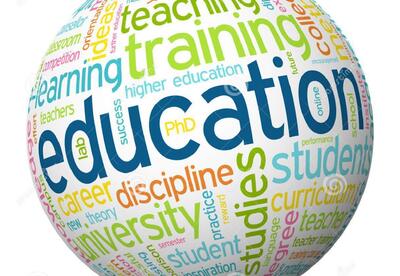School Psychologists
School psychologists help children and youth succeed academically, socially, and emotionally. They collaborate with educators, parents, and other professionals to create safe, healthy, and supportive learning environments for all students that strengthen connections between home and school.
School psychologists are highly trained in both psychology and education. They must complete a minimum of a Specialist-level degree program (60 graduate semester credits) that includes a 1,200-hour internship and emphasizes preparation in the following:
- Data-based decision making
- Consultation and collaboration
- Effective instruction
- Child development
- Student diversity and development
- School organization
- Prevention
- Intervention
- Mental health
- Learning styles
- Behavior
- Research
- Program evaluation
School psychologists must be certified and/or licensed by the state in which they work. They also may be nationally certified by the National School Psychology Certification Board.
What Does a School Psychologist Do?
School psychologists focus on finding the best solution for each child and situation. They utilize diverse strategies and techniques to solve the needs of each student and to support the overall educational environment.
School psychologists also develop programs to train teachers and prevent social, environmental, and educational issues. School psychologists often work with students with disabilities or special talents. They also work to provide training to teachers in effective teaching strategies and positive behavior support.
The following are the most common services provided by a school psychologist.
Consultation
- Be part of a team of educational professionals that research and find successful solutions to learning and behavioral problems
- Consult and build strong working relationships between teachers, parents, and community service providers
- Educate others on child development, learning styles, and behavior support
Evaluation
- Assess children for special education services
- Administer standardized tests to assess academic and cognitive ability
- Establish social-emotional and mental health status of children
- Observe and evaluate the effectiveness of learning environments
Intervention
- School psychologists work face-to-face with children, families and schools to manage crises (i.e. death, illness, community trauma)
- Help solve conflicts and problems in learning and adjustment
- Provide psychological counseling for children
- Provide social skills training, behavior management, and other strategies
- Work directly with children and families to help resolve problems with learning and behavior
Prevention
- Research and develop programs for children who are at risk of failure
- Advocate tolerance, understanding, and appreciation of diversity within the school environment
- Collaborate with school professionals and community agencies to provide services directed towards improving psychological health
- Develop school-wide initiatives to make schools more safe and effective
Research and Planning
- Observe and evaluate the effectiveness of programs geared towards academic and behavior management
- Generate new knowledge about learning and behavior
- Contribute to planning and evaluating school-wide reform and restructuring
- Use evidence-based research to develop and utilize successful interventions
School Psychologists
For More Information
For more information about the IU1 School Psychologists program, please contact:
Nativa Tamasy
Supervisor of Special Education
724-938-3241 ext. 524
nativa.tamasy@iu1.org
Dr. Kristin J. Szewczyk
Assistant Executive Director/Title IX Coordinator
724-938-3241 ext. 242
kristin.szewczyk@iu1.org









